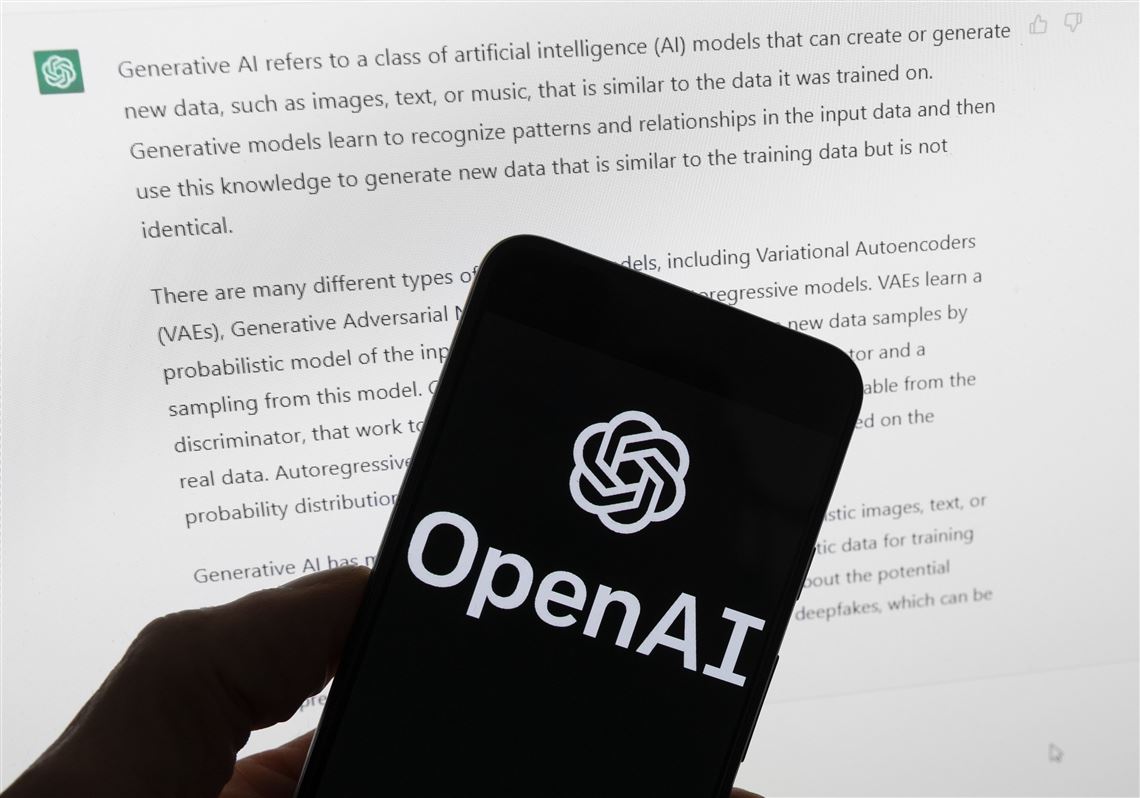ChatGPT And OpenAI: Facing FTC Investigation For Potential Violations

Table of Contents
Allegations of Data Privacy Violations by ChatGPT and OpenAI
The FTC's investigation centers heavily on allegations of data privacy violations by ChatGPT and OpenAI. These concerns span unauthorized data collection and insufficient data security measures, both critical aspects of consumer protection in the age of AI.
Unauthorized Data Collection and Use
The FTC is examining whether OpenAI engaged in illegal scraping of personal data to train its models. This raises concerns about:
- Illegal scraping of personal data: The training data used for ChatGPT may contain personal information collected without proper consent, violating various data privacy laws.
- Insufficient user consent for data collection: Users may not have been fully informed about the extent of data collection and usage practices associated with using ChatGPT.
- Lack of transparency regarding data usage: OpenAI's policies may not adequately explain how user data is collected, processed, and stored.
- Potential for data breaches: The sheer volume of data collected and processed by ChatGPT raises concerns about the potential for data breaches and the resulting impact on user privacy.
The FTC's focus on user privacy and data security is paramount in the context of AI technologies. The increasing reliance on AI-powered services necessitates strong safeguards to prevent the misuse of personal information. Recent news reports suggest concerns around the potential for identifying specific users through ChatGPT's outputs, further highlighting these privacy vulnerabilities.
Insufficient Data Security Measures
Beyond the collection itself, the FTC is also investigating whether OpenAI implemented adequate security measures to protect user data. This includes concerns regarding:
- Lack of robust security protocols: The systems may lack sufficient firewalls, intrusion detection systems, and other security mechanisms to prevent unauthorized access.
- Vulnerability to hacking: The potential for hacking and data breaches is a significant concern, given the sensitivity of the data collected.
- Inadequate data encryption: Insufficient encryption could leave user data vulnerable to interception and misuse.
- Failure to comply with existing data protection laws: OpenAI's practices may not fully comply with existing data protection laws like the California Consumer Privacy Act (CCPA) and the General Data Protection Regulation (GDPR).
The implications of insecure data storage for users are severe, potentially leading to identity theft, financial fraud, and reputational damage. The FTC plays a crucial role in enforcing data security regulations and ensuring that companies handling personal data take appropriate measures to protect it.
Concerns Regarding Deceptive Practices and Misinformation
The FTC's investigation also includes concerns about deceptive practices and the potential for ChatGPT to spread misinformation.
Misleading Claims about ChatGPT's Capabilities
OpenAI has been accused of making misleading claims regarding ChatGPT's capabilities, including:
- Exaggerated claims about accuracy and reliability: Marketing materials may have overstated ChatGPT's ability to provide accurate and reliable information.
- Failure to disclose limitations: OpenAI may not have adequately disclosed ChatGPT's limitations, such as its propensity to generate inaccurate or nonsensical responses.
- Potential for generating false or misleading information: ChatGPT's outputs can sometimes be factually incorrect, leading to the spread of misinformation.
- Ethical concerns about the use of AI-generated content: The ease with which ChatGPT can generate content raises ethical concerns about its potential misuse for malicious purposes, including the creation of deepfakes and propaganda.
Misleading claims can harm consumers who rely on ChatGPT for information, particularly in areas such as healthcare, finance, and education. The FTC's focus on preventing deceptive advertising and marketing practices is directly relevant to these concerns.
Potential for Algorithmic Bias and Discrimination
Another significant concern is the potential for algorithmic bias and discrimination in ChatGPT's outputs. This stems from:
- Bias in training data leading to discriminatory outputs: The data used to train ChatGPT may contain biases that are reflected in its responses, leading to discriminatory outcomes.
- Lack of transparency in algorithms: The lack of transparency in ChatGPT's algorithms makes it difficult to identify and address potential biases.
- Potential for perpetuating harmful stereotypes: ChatGPT's outputs could perpetuate harmful stereotypes and prejudices, particularly against marginalized groups.
- Impact on vulnerable populations: Algorithmic bias can disproportionately affect vulnerable populations, exacerbating existing inequalities.
The ethical and societal implications of algorithmic bias in AI systems are profound. The FTC's role in addressing concerns related to fairness and non-discrimination in AI is becoming increasingly important.
Potential Penalties and Implications for the Future of AI Regulation
The FTC investigation into ChatGPT and OpenAI has significant implications for the future of AI regulation.
Financial Penalties and Legal Ramifications
If found in violation of FTC regulations, OpenAI could face substantial financial penalties and legal ramifications. These could include:
- Significant fines: The FTC has the power to impose significant fines for violations of consumer protection laws.
- Legal injunctions: The FTC could issue legal injunctions requiring OpenAI to change its practices.
- Reputational damage: The investigation itself has already caused reputational damage to OpenAI.
These consequences could significantly impact OpenAI's future business prospects and ability to attract investment.
Impact on the AI Industry and Future Regulation
The FTC's actions could significantly shape the future of AI regulation, both in the US and internationally.
- Increased scrutiny of AI development: The investigation is likely to lead to increased scrutiny of AI development practices by regulators and the public.
- New regulations for AI: The FTC's findings could influence the development of new regulations for AI development and deployment.
- International cooperation on AI regulation: The investigation could spur greater international cooperation on AI regulation.
Conclusion:
The FTC investigation into ChatGPT and OpenAI highlights the critical need for robust regulations in the rapidly evolving field of artificial intelligence. The potential violations regarding data privacy, deceptive practices, and algorithmic bias underscore the importance of responsible AI development and deployment. Stay informed about the ongoing developments in this case and advocate for responsible AI practices to protect consumer rights and prevent future violations. Learn more about ChatGPT and OpenAI's response to the FTC investigation to understand the implications for AI ethics and regulation. The future of AI depends on prioritizing ethical considerations and ensuring consumer protection.

Featured Posts
-
 Pmi Beat Propels Dow Jones To Further Gains
May 25, 2025
Pmi Beat Propels Dow Jones To Further Gains
May 25, 2025 -
 The Hells Angels A Look Inside
May 25, 2025
The Hells Angels A Look Inside
May 25, 2025 -
 Serious Accident On Princess Road Live Updates From The Scene
May 25, 2025
Serious Accident On Princess Road Live Updates From The Scene
May 25, 2025 -
 Myrtle Beach Rebuts Safety Study Ranking
May 25, 2025
Myrtle Beach Rebuts Safety Study Ranking
May 25, 2025 -
 Hsv Aufstieg In Die Bundesliga Perfekt Der Weg Zurueck
May 25, 2025
Hsv Aufstieg In Die Bundesliga Perfekt Der Weg Zurueck
May 25, 2025
